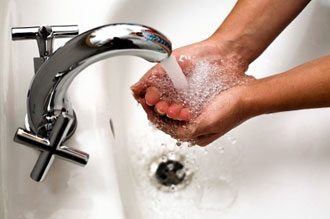Are your hands really clean?
‘Tis the season to avoid exposure to cold and flu viruses, and the best way to do that is to

‘Tis the season to avoid exposure to cold and flu viruses, and the best way to do that is to wash your hands regularly, especially if you’ve been out and about touching things like door handles or my personal nemesis, the icky bars on the subway. But once you wash, are your hands really clean?
I recently spoke with Danielle Stevens, a microbiologist for Dyson who spends her time researching the importance of drying your hands properly. "People don’t realize that wet hands can transfer up to a thousand times more bacteria compared to dry," she told me, which has inspired me to be more vigilant when drying my hands, especially in public washrooms.
What’s Dyson’s interest in this? Well, they have a very cool hand dryer out now, called the Airblade – I’ve used it in a couple of places, and it’s amazing how well it works. Their research showed that some conventional hand dryers circulate bathroom bacteria along with the hot air, so they created a hand dryer with a HEPA filter that captures 99.9% of bacteria, so the air drying your hands is clean.
Of course, that’s irrelevant if you’re not washing properly to begin with, so Stevens offered the following hand-washing must-dos:
• Use touch-free or pump soap dispensers when possible; if using bar soap, make sure it’s on a rack that allows air to circulate so it can dry properly.
• Make sure to wash with warm water, to activate the soap.
• Wet your hands before applying soap.
• Rinse all the soap off, and dry thoroughly.
• Wash hands as quickly as possible if you have coughed or sneezed on them.
Don’t miss a single Best Health Blog post—subscribe today via RSS or email!




